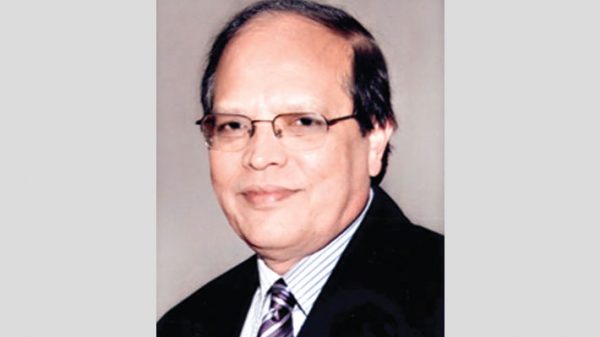A down-to-earth leader

- Update Time : Tuesday, September 29, 2020
- 157 Time View

Sheikh Mujib was always a down-to-earth leader. The needs and aspirations of the people were always at the top of his political agenda. He was seriously committed to the 21 point electoral manifesto of the United Front given before the East Bengal Election in 1954, and was prepared to go to any length to implement those demands of the people. 97 per cent of the people of East Bengal supported this election manifesto. The newly elected government of the United Front had just started implementing these when it was dissolved by a decree 92(A) of the central government of Pakistan. Sheikh Mujib was the youngest Minister in the cabinet of A.K. Fazlul Huq. And he was the only minister who was arrested on no credible complaint. The court cleared him, admonishing the government. Yet, he had to spend ten months in prison under the Safety Act.
When released (on 18th December, 1954) on compassionate grounds, he immediately rushed to his village home, where his father was critically ill. His father had been taken to Gopalganj for better treatment before Sheikh Mujib could reach home. He and his family left for Gopalganj immediately by boat to see his father. To his relief, his father was recovering quite well. But he could not stay with his family for more than a day as there was an urgent call from his mentor Mr. Suhrawardy, who was by then the Law Minister of the Central Government of Pakistan. Even though he was visibly annoyed by his leader’s decision to accept the minister post, he started for Karachi via Khulna and Jessore and Dhaka. Before that, a reception was given by the local people including the trader’s community to celebrate his release from jail. At least four thousand people attended. The intelligence branch officials who were closely shadowing him observed that people appreciated his speech at the gathering. He said to the crowd that he had been falsely implicated and kept in jail for a long period. However, he assured the people that “for the fulfillment of the 21-item election manifesto and standing against injustice he was prepared to court jail all through his life”(‘Secret Documents of Intelligence Branch on Father of the Nation
Bangabandhu Sheikh Mujibur Rahman, volume 4, Hakkani Publishers, 2019,p. 201). He also asked the students to devote full attention to their studies and fight to eradicate corruption and injustice. He also asked the Hindus not to leave Pakistan as it was their country too. He repeated these words during the entire period of 1955-56 as parts of his political mobilisation throughout the province of East Bengal. For example, he spoke on food crisis at an Awami League meeting in Khulna Municipal Park on 8th March 1956. He said, “The people of East Bengal do not want to die of starvation. If the people die of starvation, we would start such a strong movement that the Government will have to send every Awami League worker to jail. We are ready to co-operate with Government to save the people from the clutches of death.
We cannot solve this problem by begging. This problem will be solved if we can control the flood and the peasants can get proper price for their produce.
We request the Central Government to repay the foreign exchange earned by East Bengal, and utilise that money for, controlling flood and industrialisation of this wing.” (‘Secret Documents’, Volume4, p. 395). And this mobilisation of people by Sheikh Mujib continued as the food issue has always central to his political journey. on 16th June 1956 at a public meeting organised by Awami League at Kathi Hatkhola in Gopalganj, he alleged that “the present crisis was due to mismanagement of the Government” (‘Secret Documents’, Volume 4, p.460). He also urged the people of East Bengal to get united to launch a civil disobedience movement, if the Government failed to solve the food problem. A similar meeting was held at the Gopalganj Town Hall Maidan on 18th June 1956 with similar call for civil disobedience movement. Around this time came the new East Bengal Government of KSP with support from the Muslim League under the leadership of Abu Hossain Sarkar.
Mr. Sarkar, a leader of Krishak Praja Party (KSP) led by A.K. Fazlul Huq, was first made a central minister with a ‘shady political deal’ with the ruling Muslim League and then transferred to East Bengal as its Chief Minister. Many conspiracies were afoot around this time. Sheikh Mujib was spending a lot of time travelling to different parts of East Bengal and hearing the grievances of the people. He was critical of the maladministration of both the provincial and central governments during this period of political mobilisation. As already flagged a serious food shortage was visible in rural East Bengal and a near-famine situation was prevailing at that time. He accused the Chief Minister Abu Hossain Sarkar of employing corrupt tactics to win the favour of the legislators and issuing permits that allowed them to get rice from the government at cheap prices. This caused the food price to go up and as a result a famine was approaching East Pakistan (“Sheikh Mujib: Triumph and Tragedy” by SA Karim, pages- 72 and 73). He also spoke of the discrimination of wealth among the Pakistanis, the food crisis, issue of permits, overall job opportunities, and discrimination in military power, foreign earnings and foreign policies across various speeches during this time. He continued his tirade against the Sarkar government for failing to ensure food security for the ordinary people of East Bengal.
Eventually, Abu Hossain Sarkar had to give up his position as Chief Minister as the public opinion went against him. The Sarkar government was dissolved on 31st August 1956. On 5th September, Ataur Rahman Khan agreed to form a new government along with Abul Mansur Ahmed, Sheikh Mujib, Kafiluddin Ahmed and Mahmud Ali as his cabinet colleagues (Karim SA,’Sheikh Mujib: ‘Triumph and Tragedy’, 2009, revised edition, UPL,p. 73). Soon after, H.S. Suhrawardy was made the Prime Minister of Pakistan. Sheikh Mujib, as the minister of industries, trade, labor, anti-corruption and village aid in the provincial government, made a number of demands to the Central Government. The central government seemingly agreed to his demands for equal distribution of foreign earnings among the two regions, autonomy in managing the industries like jute, cotton and clothing, autonomy of the provincial government to issue export license, establishment of the office of Chief Controller of Export and Import, and a Director General’s office in the Development Department. Even though the provincial government was to assume control of these offices soon, in reality, none of these demands were finally granted, mainly due to the non-cooperation of the central bureaucracy. (Abul Kashem, ‘Bangabandhu Nirbhik Rashtranayok: Nirbachito Probondho Shongkolon’, page -37). Sheikh Mujib also spent quite some time in the villages of East Bengal during his time as a minister. He participated in relief work along with his party members and helped improve the food situation. Rice was imported from Burma and gruel kitchens were established to ease the situation (Karim SA ibid. p. 75). This shows that Mujib as a minister was on the right track in both practice and policy. In fact, he was quite familiar with relief activities as he had been involved in this since his student days.
Sheikh Mujib was also the chairman of Pakistan Tea Board in 1956-57 while working as a minister. He expanded the industry and helped increase the export earnings. He also established a ‘Research and Production’ committee in the Tea Board. The Central Government proposed to establish a ‘Tea Research Station’ in Sreemangal, which would be under the jurisdiction of the Central Government. Sheikh Mujib opposed this proposal strongly and the Central Government could not do much in this case. Ultimately, said station was established under the jurisdiction of the Tea Board which belonged to the provincial government. (Abul Kashem, ‘Bangabandhu Nirbhik Rashtranayok: Nirbachito Probondho Shongkolon’, page -41).
While Suhrawardy was the Prime Minister, Maulana Bhashani criticised the government heavily despite the fact they belonged to the same party. These internal disagreements ultimately led to a split in Awami League. At the Awami League council meeting in Kagmari, Maulana Bhashani questioned Mujib’s position as both a minister and the General Secretary of Awami League, and asked him to choose one. Oli Ahad was the one who was conspiring against Sheikh Mujib as he wished to take the position of General Secretary. They had expected that Mujib would give up his position in the party in order to remain a minister (Karim SA, ibid. p. 79). However, soon after, Mujib resigned as a minister and remained as the General Secretary of the party. He was the only one among the Awami League members of the ministry to have resigned from their ministerial position and that too for strengthening the organisational base of the party. This only indicates how deeply political he was.
Report No. 222 of Volume-4 of the Secret Documents of Intelligence Branch states:
“…It may be recalled that during the Awami League Council meeting at Kagmari a few months ago the President of the organization Moulana Abdul Hamid Khan Bhashani had asked Sheikh Mujibur Rahman to choose between minister ship and the General Secretary ship of the organization, and Sheikh Mujibur Rahman had then told the Moulana that he would resign from the Cabinet in due course, Sheikh Mujibur Rahman’s resignation at this juncture when the Awami League Council meeting is due to be held on June 12, bears a great significance.” (‘SECRET DOCUMENTS’ op.cit, p. 509.).
Bangabandhu served the provincial government as a minister for only nine months. However, in those nine months he contributed to the region as much as possible. And when questioned regarding his loyalty towards the Awami League, he did not hesitate to pick his party above other things. This goes to show us that he did not care about what his position was. Rather, he worked relentlessly towards improvement in the situation of the people from any position he was put in.
On 3rd January, 1971, in an assembly of around 2 million people at the Race Course Maidan, Mujib said:
“I have no desire to be Prime Minister. Prime Ministers come and go. But I will always recognize the endearment and reverence people have given to me. I am not afraid even of persecution and the solitary confinement of the dark prison. But the affection of the people has weakened me.” (Translated by the author from Bengali).
Indeed, he was for the people and people always stood by him. And that is how he was able to demonstrate such a compassionate brand of leadership.
The writer is the Bangabandhu Chair Professor at Dhaka University, and former Governor of Bangladesh Bank. He can be reached at dratiur@gmail.com



















